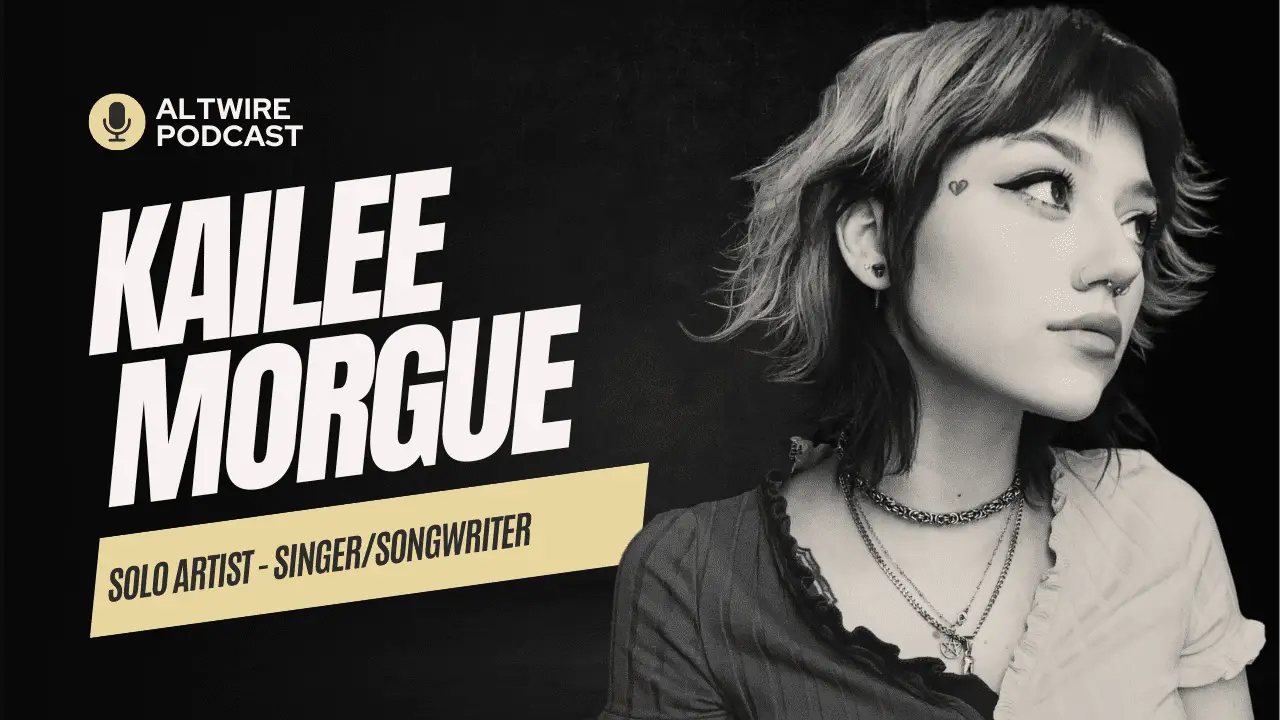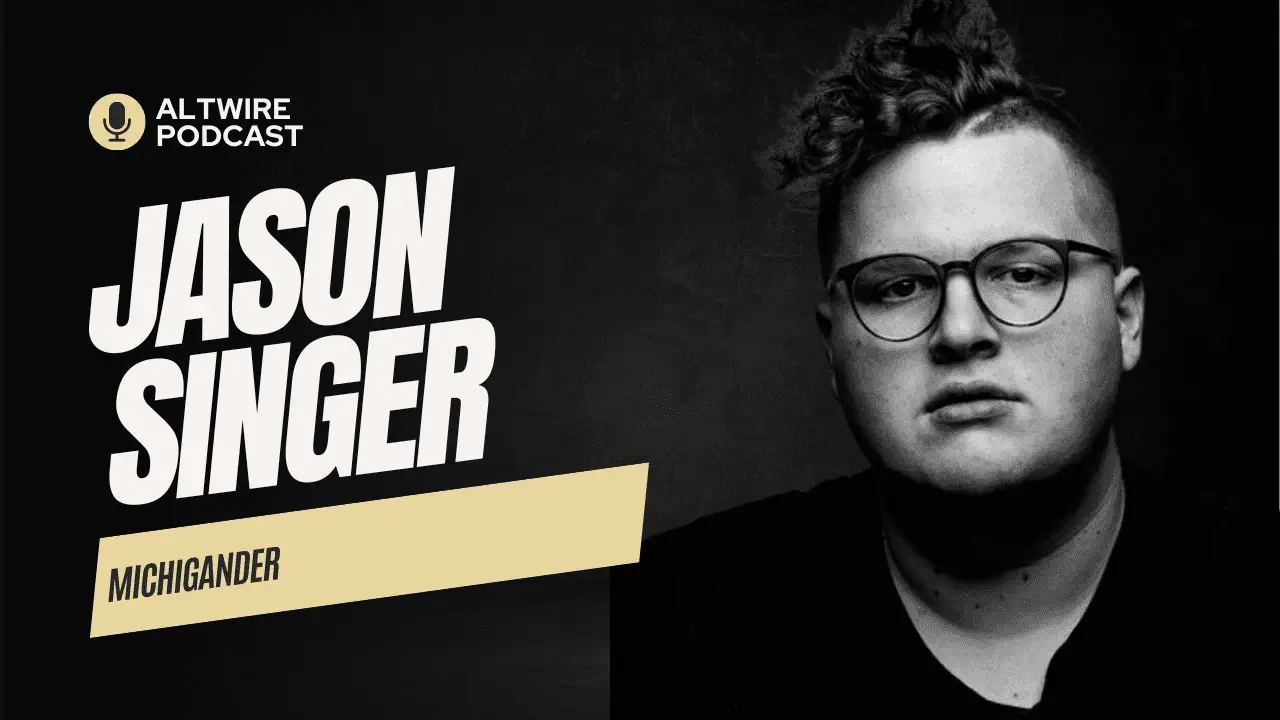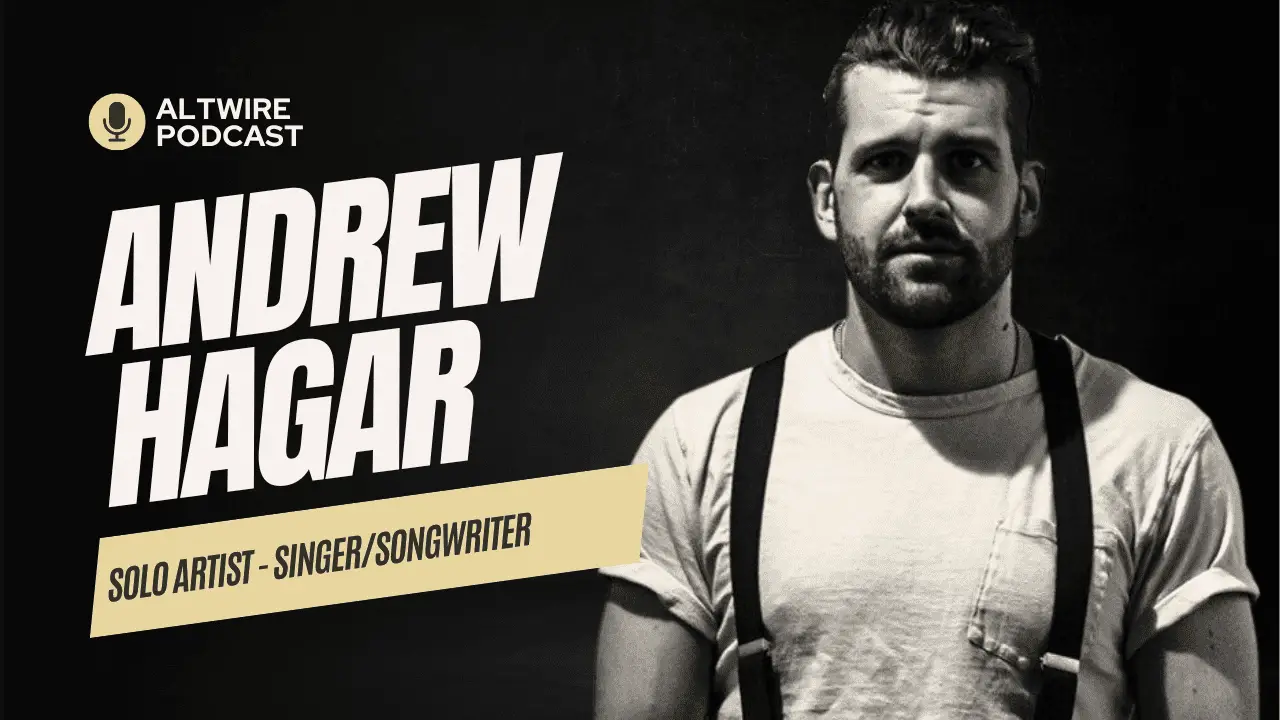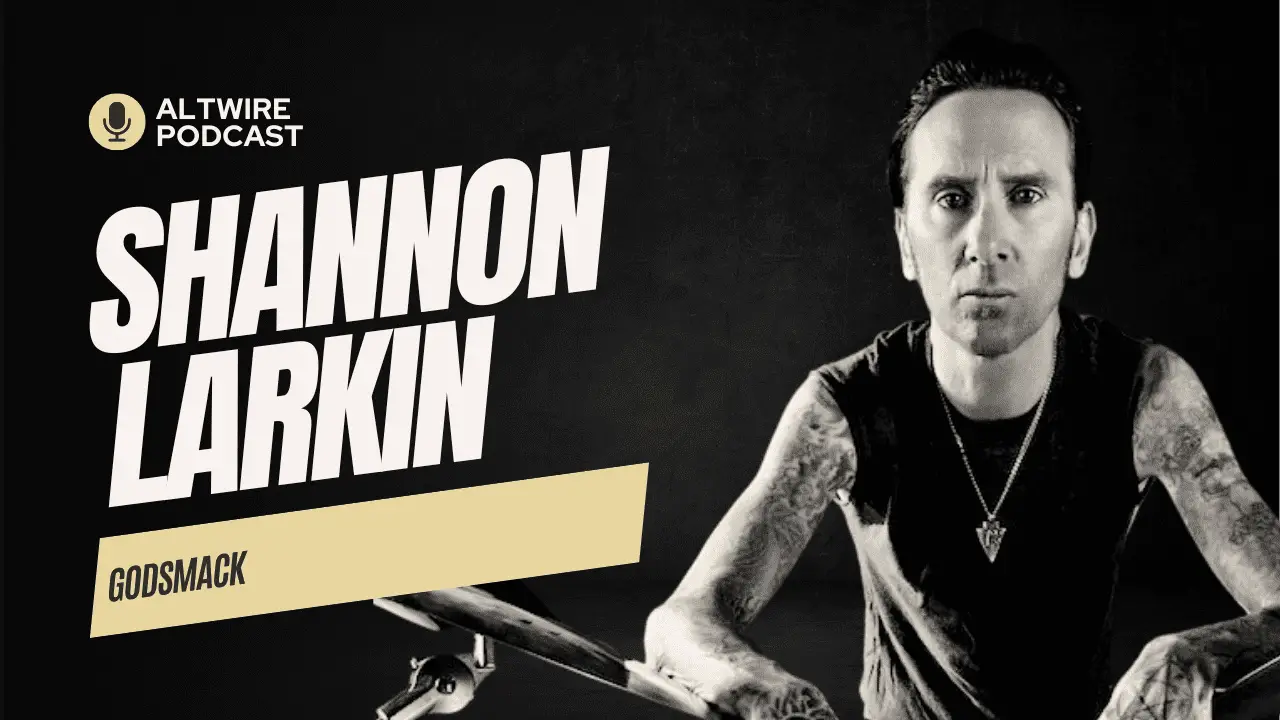Paloma Faith is a British singer with a voice that captivates audiences around the world. Known for her soulful sound and outspoken nature, Paloma has been making waves in the music industry for over a decade.
Her latest album, The Glorification of Sadness, is a vulnerable and honest exploration of heartbreak and the healing that comes with it. In our interview, Paloma discusses the making of her album, being a woman in the music industry, and what it’s like to go through a breakup in the public eye. Read on to learn more about this talented artist and her journey towards self-discovery through music.
The below is a cleaned up transcription of a recent podcast episode, which you can listen to here.
Derek Oswald / Altwire.net: Thank you so much for giving me your time today. It’s been a few years since your last release. And there is, of course, one word that comes to mind for me: transformation. With the pandemic and everything else that’s transpired in your life, what has your personal journey been like through the creation of this record?
Paloma Faith: It’s been therapeutic, I think. I felt very lonely with my feelings breaking up from a relationship I was in for ten years and having had two children. In the past, I’ve written quite flippant songs about breakups because I didn’t have kids with them, and I was young, and they were all a bit “screw you.”
And I think there’s something very grave, and it’s got so much more depth because it feels like where we failed, we failed our children, in a way. And with social expectations and all of that, yeah, it does feel like a failure. So, I think it was quite helpful to me to have this to work on as a welcome distraction and a place to put my feelings.
Quite often in these situations, we can feel very consumed by our own loneliness or feelings of isolation. But it was amazing to be able to go into the studio every day with friends and emotionally intelligent people and really sort of bash all the walls down and try and get to the root of the feelings of all the stages of guilt – which are explored in the album.
Derek Oswald / Altwire.net: One of the things that has always frustrated me as a music journalist is how crazily obsessed society is with focusing on the personal lives of those in the limelight. One of the most infamous examples that comes to mind is how the public treated, and in some cases continues to treat, Taylor Swift. Every time she gets a boyfriend, they’re like, how long until this becomes her next album? It’s BS because. You don’t ever see men in the music industry go through that; if a man in the music industry dates 20 women in a year, everyone talks about, oh, he’s, he’s the ultimate player.
Paloma Faith: Or an eligible bachelor.
Derek Oswald / Altwire.net: Exactly. And, if a woman does it, if you’ll pardon the expression, they slut shame her, which I think is disgusting. What are your thoughts on how society views women in the music industry and the public light when it comes to relationships and what you’ve gone through personally?
Paloma Faith: Well, I think it’s appalling, but I also feel like it’s a time where things are shifting. Like, I’m a woman in my forties with two children who I feel like is having probably my first chance at potentially coming to America to present my music. I’m on album six now, and it’s sort of like ten years ago when I tried, and the doors felt quite closed; it would have been unheard of by me. I’d be like, I passed it. I can’t do that anymore.
So, in a way, society is progressing in the sense that the public decides what music they want to listen to and what music speaks to them in a way that maybe they didn’t before. It was a marketing machine that decided back then.
And now, you know, there’s much more freedom to explore, much more acceptance. So, I do think that’s progressive. But, it was difficult for me, and I’ve written about my children in the lyrics, but then somebody interestingly said to me, ’cause I was sheepish about it – I was like, “Oh God, people are going to think that I’m invisible.”
Cause people find mothers invisible. You’re not sexual because we don’t see you as that, or unless you are, then you’re a milf, and even that is a kind of derogatory term like the only things that a woman can do is give birth or have sex.
Derek Oswald / Altwire.net: Right.
Paloma Faith: But it was interesting when somebody brought to my attention that, actually, that kind of mindset and the psychology of country music has always done what I’m doing in this album.
Like you look at Dolly Parton’s songs, she wrote the Parent-Teacher Association song and a song called Divorce. And we’ve journeyed through country music with female artists who have transcended all of that, called it out, or sung songs about it in an empowered way. For some reason, it hasn’t really happened in other genres or popular music, but country is one of the most popular genres globally.
So I think there’s progress, but that doesn’t mean that I think the work is done. Like part of what I speak about in the song “Bad Woman,” that says, “I’m not a good girl. I’m a bad woman.” It’s all about this. It’s, all about saying I’ve been told so many times that because I don’t adhere to social norms that I’m a bad woman.
But who says? And actually, I think we’re doing our children a disservice by raising them to be good girls. Like I sing “Bad Woman” to my two-year-old every night before she goes to bed, and she asks for it. She goes around telling people, “I’m a bad woman,” she says it to people, and I find it so cute.
But I’ve got two daughters. I don’t want to raise them to think that they have to behave and do everything that they’re told to do if it goes against what their gut reaction is. Like, you know, you look at stories – it’s getting heavy [here] – but you look at stories, nowadays about sexual coercion, and you think how much that begins in childhood where we’re forced to like to kiss our Uncle whoever good night and we don’t want to. And they’re like, “Don’t be rude, don’t be rude, don’t be rude,” and we’re taught to put away these instinctive feelings of self-preservation and like ignore your feelings, ignore your gut instinct, and go against it, to be good. Just to be nice and please people and please society and all of that.
So I think that song, in particular, is meant to be kind of an anthem of rejection of that.
Derek Oswald / Altwire.net: I don’t think it’s heavy; I think it’s true. The whole fact of the matter is there’s a famous saying that says, Those who don’t learn from history are doomed to repeat it. Think about everything women, people of color, and people in the LGBTQ community have gone through in the last 30 and 40 years.
Just to get to the point where they can start being represented, heard, and seen. Now, it horrifies me every time I turn on the television. It’s like we’re going back to the 1950s. But one of the things I thought was so awesome for you personally is you going ahead and recording this entire album basically kind of in private. You took back your creative journey. When you were making your previous album, you said in your As I Am documentary about all the struggles you went through. How good did it feel as an artist to get your creative freedom back on this album and basically be able to give that finished album and say, This is me. This is my product. You guys don’t have anything to do with this. How did that feel?
Paloma Faith: Scary. I think it was important because it felt very personal. Because of the kind of sensitivity of that being such a significant breakup, it was difficult for me even to hear anybody’s opinion on anything. Because I was like, this is my actual life experience, and I can’t even believe I’m sharing it with you or playing it to you because I don’t know who you are, aka the people in the boardroom.
And this is the most kind of life-changing experience I’ve had. I think that probably, in hindsight, I had some kind of breakdown surrounding it all in a way that I’ve never experienced. Because I’ve had a lot of trauma happen to me in my life, but I’ve never felt that I contributed anything. It felt very much like all the bad stuff that’s happened to me happened to me, whereas in this situation, it’s the first time that I feel a combination of stuff happening to me, but also my choices affecting the outcome.
That felt really heavy. And so to kind of like take ownership of it was important, but also terrifying because I have been brought up in patriarchal structures and to kind of like actively say no to habitual things that are come from like the structures you’re used to. It does feel terrifying because you’re like, what if I do this big, brave, bold move and then nobody likes it, or like, it falls on its face. And the difference with this is that I’m coming to a situation now in my career where I’ve had six albums. If my record company says to me now, “No, we’re not going to fund that for you. Because we don’t want to spend money on that.” I can afford to fund it myself and I feel like it’s a really luxurious situation to be, but I’ve been doing that.
I’m like, “No, I’m going to make this album. We’re going to write these songs, and I’m going to fund myself.” If I’m going to be on an American TV show or speak to you, I’m going to pay for the flight. I’m going to go and do this. I’m really going to have independence and just hope it doesn’t fall flat on its face.
But I also think that even if it does fall flat on its face, it would still feel good because at least I’ve tried, and I’ve done it on my own terms.
Derek Oswald / Altwire.net: Just to kind of wrap things up because I know we’re getting close to running out of time here, how did it feel to have your song “Only Love Can Hurt Like This” explode so hugely on TikTok? That was such a viral song on TikTok for the longest time. How has that type of marketing and TikTok in general changed your career?
Paloma Faith: It’s unbelievable because when I released the song eight years before it exploded. I was called into a boardroom meeting in the States by a record exec from America, and this person said to me, “We think that this song could break you in America, which could potentially lead to globally, but I’m not going to put any marketing funds behind it unless you reshoot the video. We can’t have a mixed-race relationship on a video. America won’t pay for it, they won’t buy it, they won’t like it.”
And I said, “Well, that’s not me, like, I refuse to reshoot a video with me with a white person because I think that goes against my moral code. I’m not a racist”. And he said, “This could be the difference between you breaking America and not breaking America.” And I said, “I don’t want to break America on those terms.” And whilst he’d flown me out on a business class flight to have this conversation, he put me home on an economy flight to make a point.
And then eight years later, during lockdown, suddenly, the song that they talked about had become viral all across the world, but particularly in North America. Now, my streaming numbers in North America are my biggest streaming numbers. And it’s all because the public now decides, and the public doesn’t care that I was snogging a black man in my video, and they shouldn’t in the first place. But it was just this perception idea of a marketing machine, and it was wrong at the time. I’m really glad that it’s still wrong today, and I’ve stuck to my guns because I always will.
I can’t be an inauthentic artist, so I’m really proud of people, and I’m proud of TikTok, and I’m proud of the way music is being consumed because it’s decided by the public now, and that’s how it should have always been.
Derek Oswald / Altwire.net: Perfect. Well, I do want to thank you so much for joining me today. For everyone listening in, please check out her new album, The Glorification of Sadness, coming out on February 16th. Thank you so much for wearing your heart on your sleeve today. And I do hope you have a great rest of your day.
Paloma Faith: You’re welcome, and thank you.








